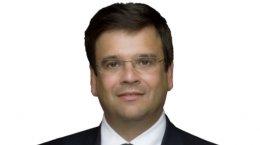Parag Saxena is the founding general partner and CEO of New Silk Route Partners, a $1.38 billion private equity fund focused on India and other emerging economies of Southeast Asia. With offices in Mumbai, Bangalore, Dubai and New York, New Silk Route is invested in a variety of sectors, including telecoms and education.
FINalternatives' Mary Campbell spoke with Saxena recently about his firm’s investing process, the increased interest they’re seeing from pension funds and the fallout from the troubles of New Silk Route co-founder Rajat Gupta.
How much of your $1.38 billion is currently invested?
We have made 14 investments and deployed approximately $700 million so far and we have earmarked another $50 million or so for the existing investments, so we’re about halfway invested at this point. We have a fairly rich pipeline and expect to do two maybe three transactions during the rest of this fiscal year (our fiscal year ends March 31).
You’re focused on India, but are you also focused on any particular sectors?
We have three people that have a lot of historical experience in telecommunications—two former telecoms CEOs [and] one early-stage investor in telecoms—so we have a couple of investments in that space. We have a cellular tower company, we have a data wireless company, we have a…digital cable services provider. In a related area, we have a content provider of television programming (where we sell the content).
We have two investments in education…We have a school company in India, which is a very recent investment, and we have a school company that is outside India...it’s in the region, but it’s not in India.
We have a pharmaceutical company—healthcare is another area where we see great promise—again, we have several people in the team that have run pharma companies at different levels or been very early-stage and very active investors in pharma companies. We have several people that ran major financial services companies and so we have a financial services company.
How do you choose the companies in which you invest?
Our style is basically to say, is there something that we can do that the current management team will find helpful, that will be value-add to the management team? It’s important for us to believe that in approximately the time that you can feel an earthquake, you can articulate the two things that you are going to do that make the difference to a company. If it’s going to take longer than that, it’s not worth doing.
Can you give me an example of the kind of thing you feel you can do for a company?
I mentioned the pharmaceutical company to you, we have an investment in a company called Nectar Life, where we have a roughly 35% holding (we are the second-largest shareholder after the family that started the company) and this company makes generic drugs, all in the injectable antibiotic area.
We do what we call ‘segment studies,’ …basically very narrow studies that look at an area. Here, we looked broadly at healthcare, then pharmaceuticals, then generic pharmaceuticals, then generic injectable pharmaceuticals (as opposed to oral), and came to the conclusion that that was a segment we wanted to invest in.
We met with a number of companies in that segment and found one, Nectar Life and we said to them, ‘Look, we think that your company would be much more valuable if we can help you do two things: One, if we can help you get regulatory approval from Western countries, …that would significantly improve the scope for your company and the marketplace you can sell into and number two, if we can add a product area—you’re in antibiotics, but if we could get you into oncology or cardiovascular, or a different area…that would add a lot of value to your company.’ They said, ‘That sounds great.’
We made this investment…in March 2010…and we have since then put the company through its paces…and they have now got regulatory approval from Korea, which is the second-hardest regulatory approval to get in Asia, and Japan, which is the hardest…and more recently US FDA approval.
The second part, adding a product line…we have a six-person team involved…that just relentlessly focuses on this task.
Do you have guidelines for the size of investment you’ll make or the stake you’ll buy in a given company or does it vary?
It does vary, but it is one of two things: Where we have a management team or talent…we then try to secure control of the company and put our management in…We went through this in financial services, we went through the same study and ended up thinking that mortgages for homes was a very interesting area for us to be in. We recruited a three-person team led by a gentleman called Vivek Vig, an ex-Citibank banker.
We eventually purchased 100% of a company called Dawnay Day which had filed for bankruptcy in the UK and had a subsidiary in India…We now have a thriving mortgage origination operation which is done in partnership with…Punjab National Bank, India’s second-largest bank.
Are you looking at anything now?
We are very interested in the medical device business and [we’ve] recruited a couple of people—Supratim Bose, the former chairman and CEO of Johnson & Johnson for Asia Pacific, and the head of sales for Johnson & Johnson in India, Manish Malu—and they sit in our office—we have a little portion of our office where these ‘incubated deals,’ if you will, although they’re not startups, are created…A team of four of us dealt with about 60 companies in the medical device space and we’re now actively negotiating with three of them. We may end up with none of them, we may end up with all three, but it is one of the deals I expect to finish this fiscal year.
Has the cloud surrounding Rajat Gupta affected your business? [Gupta, a co-founder of New Silk Route, has been accused of providing tips to another New Silk Route co-founder, convicted insider trader Raj Rajaratnam. Gupta took a leave of absence from the private equity firm in March. Rajaratnam cut ties with the firm when it decided to launch a hedge fund.
We certainly had to do some handholding, make sure that our limited partners were comfortable, make sure that our team members were stable and comfortable. We’ve actually had a very senior partner join us since Rajat was [charged]…on March 1. But subsequent to that, we have both closed a transaction as well as added a senior resource so our business, no, hasn’t been affected.
We’re talking to the same people, we spent some time talking to our investors, we actually made a point of doing that because we did not want them to be blindsided in any way, so whatever we could share with them, we shared with them. We are fortunate to have a 25-person team…We have a lot of extra bench strength…so we weren’t as deeply affected as we might have if we were a small team.
What sort of interest are you seeing from Western pension funds?
About three-quarters, maybe four-fifths of our money is from Western entities, certainly well over half of all our money is from pension funds of some kind, mostly Western, but we have the occasional sovereign wealth fund, which is a form of a pension fund [and] I expect that interest will continue to grow.
It’s going to be a question of expected returns; I guess if I was sitting in another Park Avenue office in New York, I would say, ‘Am I better off investing in a slowly growing U.S. company…with very familiar governance, legal structure, products, consumers at a point in time [where] I can borrow at very low rates…or am I better off investing in a Chinese or Indian company growing at 20% or 25%...I would go through the math and in some cases safety will win out—my comfort in my local zone—and in some cases I’ll be willing to take the risk and invest in a faster-growing company.
Will increased pension money affect the management style of private equity funds?
As more money comes in, return expectations, etc, will start to become more important and it’ll start to affect us. But at the moment, the only thing that I can see it affecting in the near term is the size of transactions…When I look at our competition for transactions, we’re the only Mumbai-based fund that is a player in the $75 million and above transaction [space]. No Indian player generally plays in that [space], but we will see competition from KKR, from Blackstone, from Carlyle, from TPG occasionally. That will change. More people will come in, raise large funds like us as more pension money comes in, and the average deal size will go up and competition for those deals will increase.





